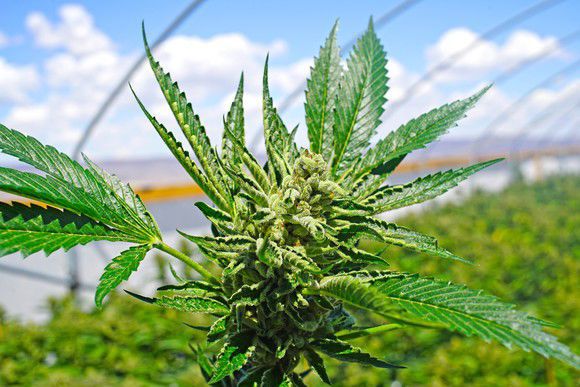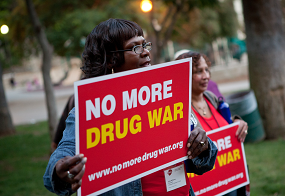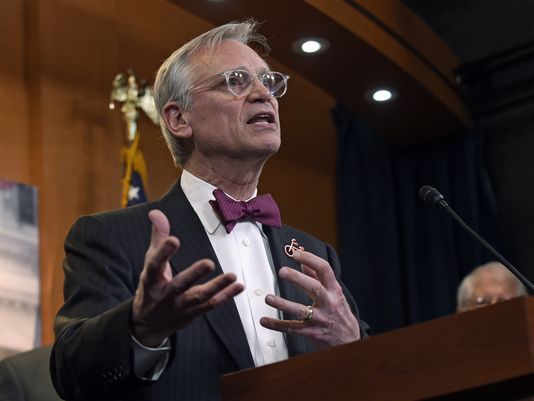Canada’s likely move to completely legalize marijuana next year promises to produce immediate spillover effects in the United States, starting with increased confusion at the U.S.-Canadian border.
“I’m expecting my business to boom,” said Len Saunders, an immigration attorney from Blaine, Washington.
With recreational marijuana already legal up and down the West Coast, from Alaska to California, he said, more Canadians may let down their guard and admit to U.S. authorities that they’ve used marijuana, reason enough to get foreigners barred from entering the country.
Beyond that, pot retailers and legalization backers say it’s difficult to predict exactly what might happen if Canada, as expected, becomes only the second nation in the world to fully legalize pot for anyone over 18 on July 1, 2018.
Even with such a big move, Jacob Lamont figures the Canadian customers will keep coming to Evergreen Cannabis, his pot shop in Blaine, just a few blocks from the U.S.-Canadian border.
Oregon Democratic Rep. Earl Blumenauer, a longtime champion of legalization, said it could be a game changer for Congress.
“It completely changes the dynamic,” he said. “Some regard Canada as the 51st state. This is going to make a big difference in terms of adjusting attitudes and accelerating progress. . . . It’s going to help us bring these things to a head.”
Saunders scoffed at the idea that the United States would ever legalize marijuana with President Donald Trump, a teetotaler, in the White House.
“You have a president who not only has an attorney general (Jeff Sessions) who is going to fight drugs, but you have a president who’s never even had a sip of alcohol,” Saunders said.
One of Saunders’ clients, Alan Ranta, 36, a freelance music journalist from Vancouver, British Columbia, got barred last year as he tried to drive his Toyota Yaris into Washington state. During questioning, he was handcuffed and told a U.S. border guard he had smoked marijuana in the past. Even though he was not carrying the drug with him at the time. Ranta said, he was told that under U.S. law he had committed “a crime involving moral turpitude.”
“It lulls you into a false sense of security when you don’t have anything on you and you’ve done nothing wrong and you’re going to a place where it’s legal,” Ranta said. “You keep thinking, ‘This is crazy, why am I getting in trouble?’ ”
He figures he was stopped because he and a friend were headed to a music festival, with a banana suit, tutus and a psychedelic top hat visible in the car: “If it’s an electronic music festival, we like to dress up in weird things that we’d never wear day to day.”
Saunders said that even Canadian Prime Minister Justin Trudeau, as a private citizen, could be denied entry since he had admitted to smoking marijuana in the past. Saunders is advising people not to lie to border authorities but to refuse to answer any questions about past pot use.
Saunders said Canadians who were barred could apply for a waiver, paying $585 but then having to wait for months to get permission to enter the country. Usually, he said, the requests are rarely disapproved, but he got his first denial last month for a case involving a 20-year-old Canadian student who had admitted smoking pot to an agent. Saunders called it the “first change I’ve seen” and predicted that it’s a sign of more to come from the Trump administration.
Last year, Canada Public Safety Minister Ralph Goodale told the Canadian Broadcasting Corp. it was “ludicrous” that so many Canadians were getting banned and said the issue needed to be addressed with U.S. officials.
Goodale declined to be interviewed by McClatchy, but his spokesman, Scott Bardsley, said the issue had come up at a news conference when Trudeau unveiled his legalization plan on April 13.
“What we will expect of our American counterparts, just as they would expect it of us, that when people present themselves to cross the border, that the experience is respectful, that it’s consistent, that it’s professional and that people are not treated in any kind of a capricious way,” Goodale told reporters.
A spokesman for U.S. Customs and Border Protection said any decision by Canada to legalize marijuana would not change anything at the U.S.-Canadian border.
While eight states have approved recreational marijuana use and 29 allow the drug to be used for medical purposes, pot is still regarded by federal authorities as a Schedule 1 substance, in the same category as LSD and heroin, with no medical value.
Last month, Department of Homeland Security John Kelly said there would be no letup in fighting marijuana, calling it a “potentially dangerous gateway drug” and saying his agency would continue to arrest and investigate those possessing it.
“Its use and possession is against federal law, and until that law is changed by the United States Congress, we at DHS, along with the rest of the federal government, are sworn to uphold all the laws that are on the books,” Kelly said.
With summer approaching, Lamont is expecting more business from Canadians. He said they accounted for up to 75 percent of his business as the local population boomed during the tourism season. And he said he was warning his Canadian customers that they didn’t need to incriminate themselves at the border.
Lamont said he’d be watching the nuts and bolts of Canada’s legalization plan as it developed, but he predicts he’ll be able to sell marijuana at lower prices, depending on how much tax is imposed by the Canadian government.
“I’m thinking it’s going to be pretty steep,” he said.
For Ranta, the cost of applying for a waiver is far too steep, nearly as much as the $650 he pays each month for rent.
“I don’t make very much money. I can’t afford to spend a month’s rent on the possibility of visiting the states,” he said.
Ranta said he had scrapped his plans to cover the Sasquatch Music Festival in Quincy, Washington, over Memorial Day weekend. He’s sad that he won’t be visiting his family’s cottage in Point Roberts, Washington, where he spent summers growing up. And he said he and his wife missed their regular trips to Bellingham, where they shopped at Trader Joe’s.
“My wife and I won’t be doing random trips to spend our money down there anymore,” Ranta said.














